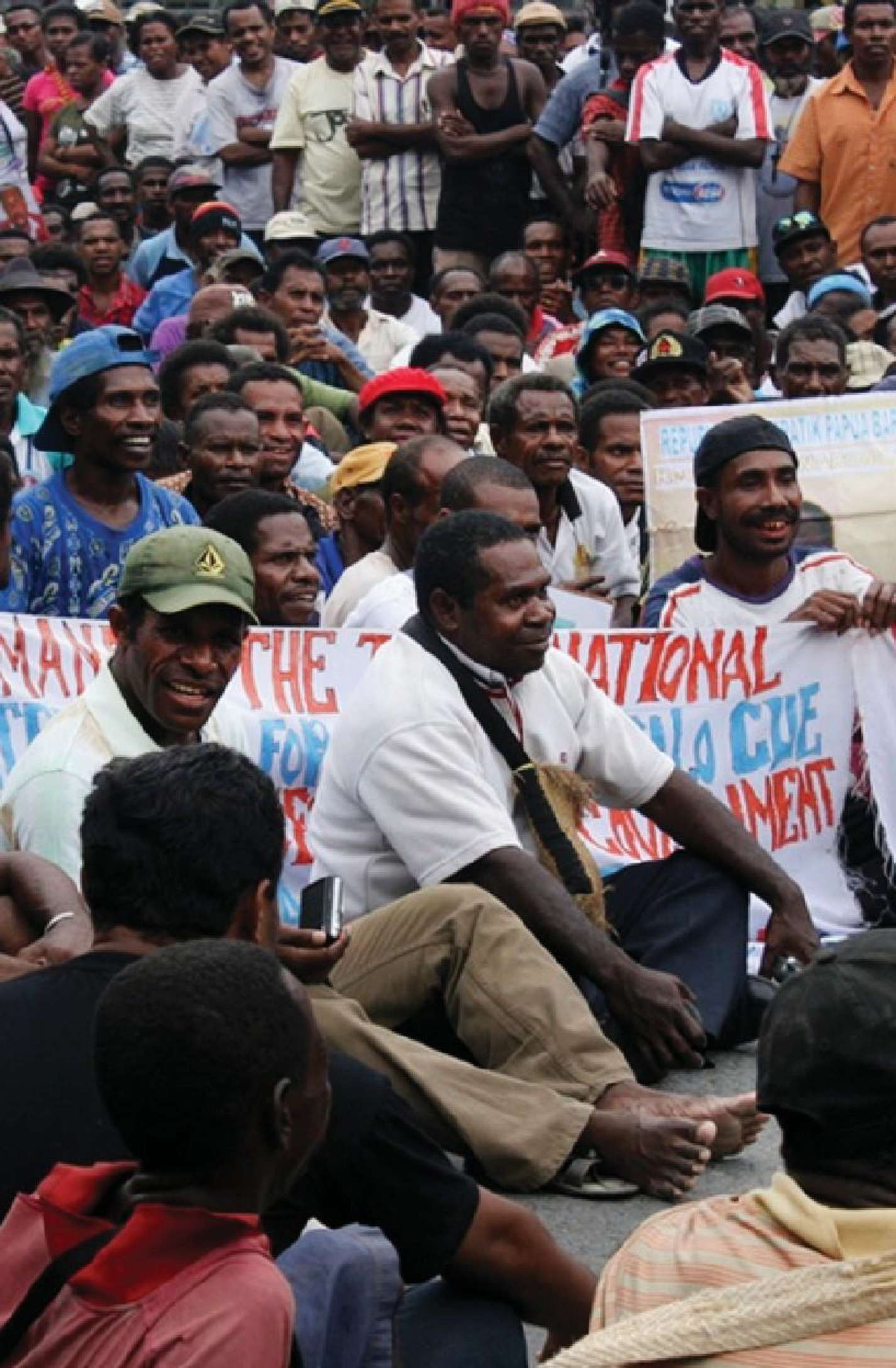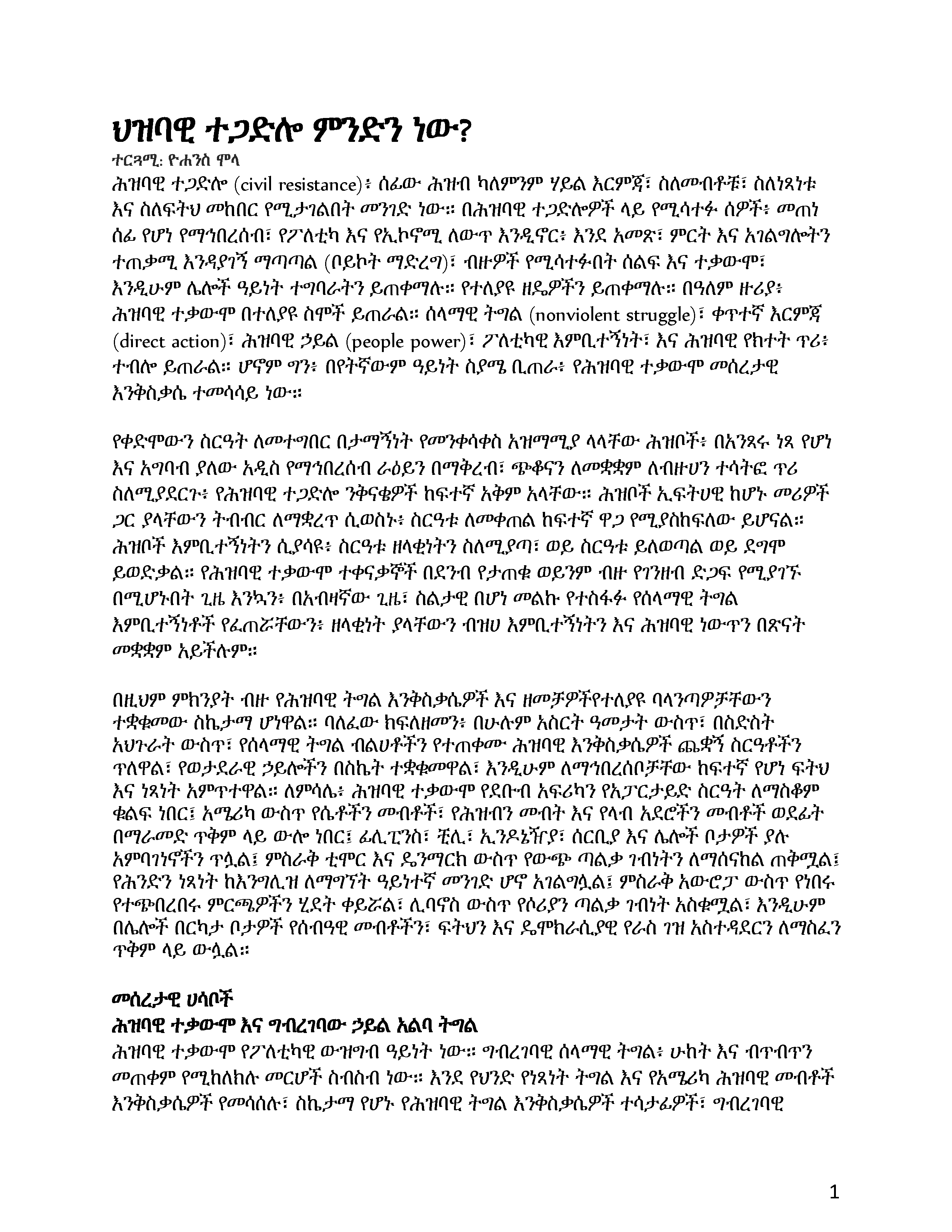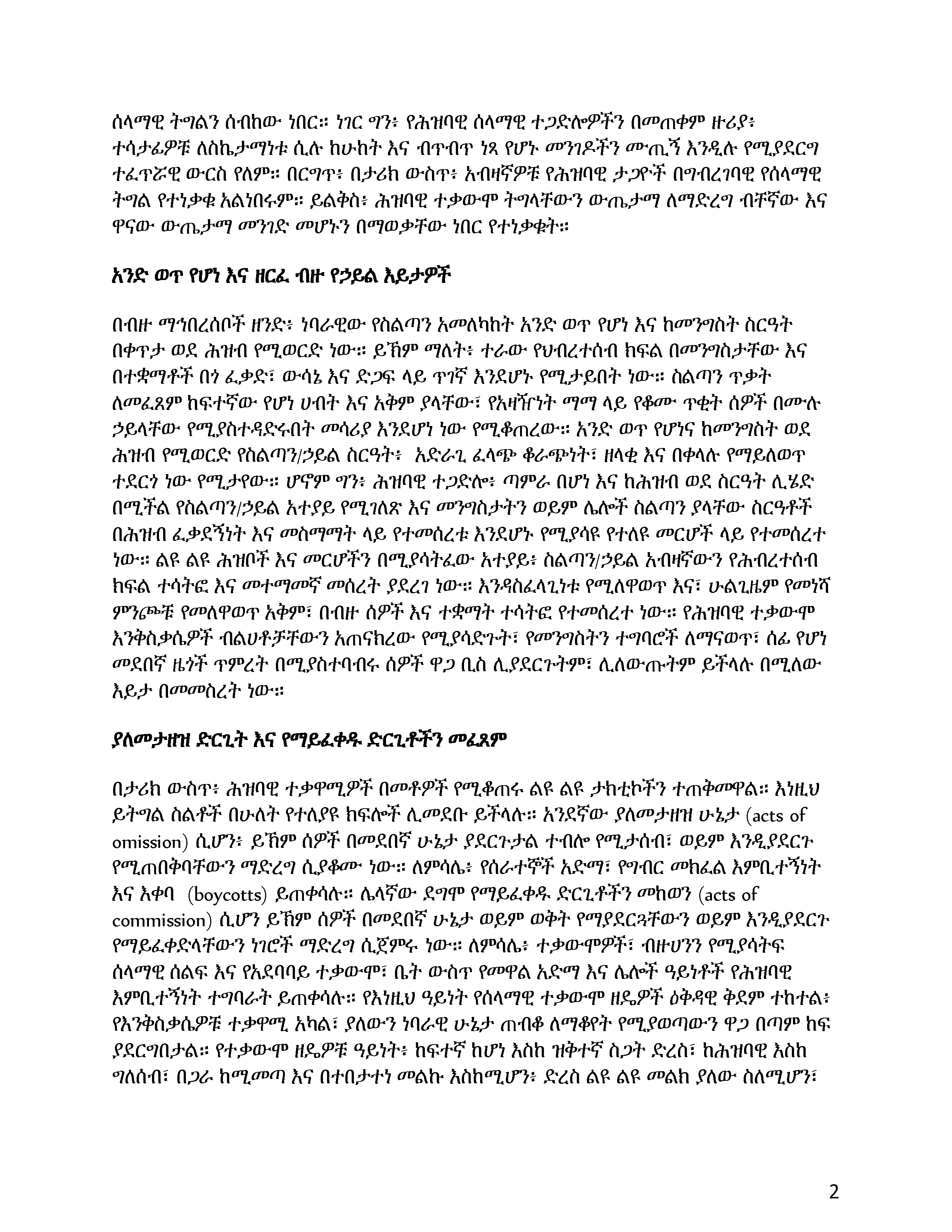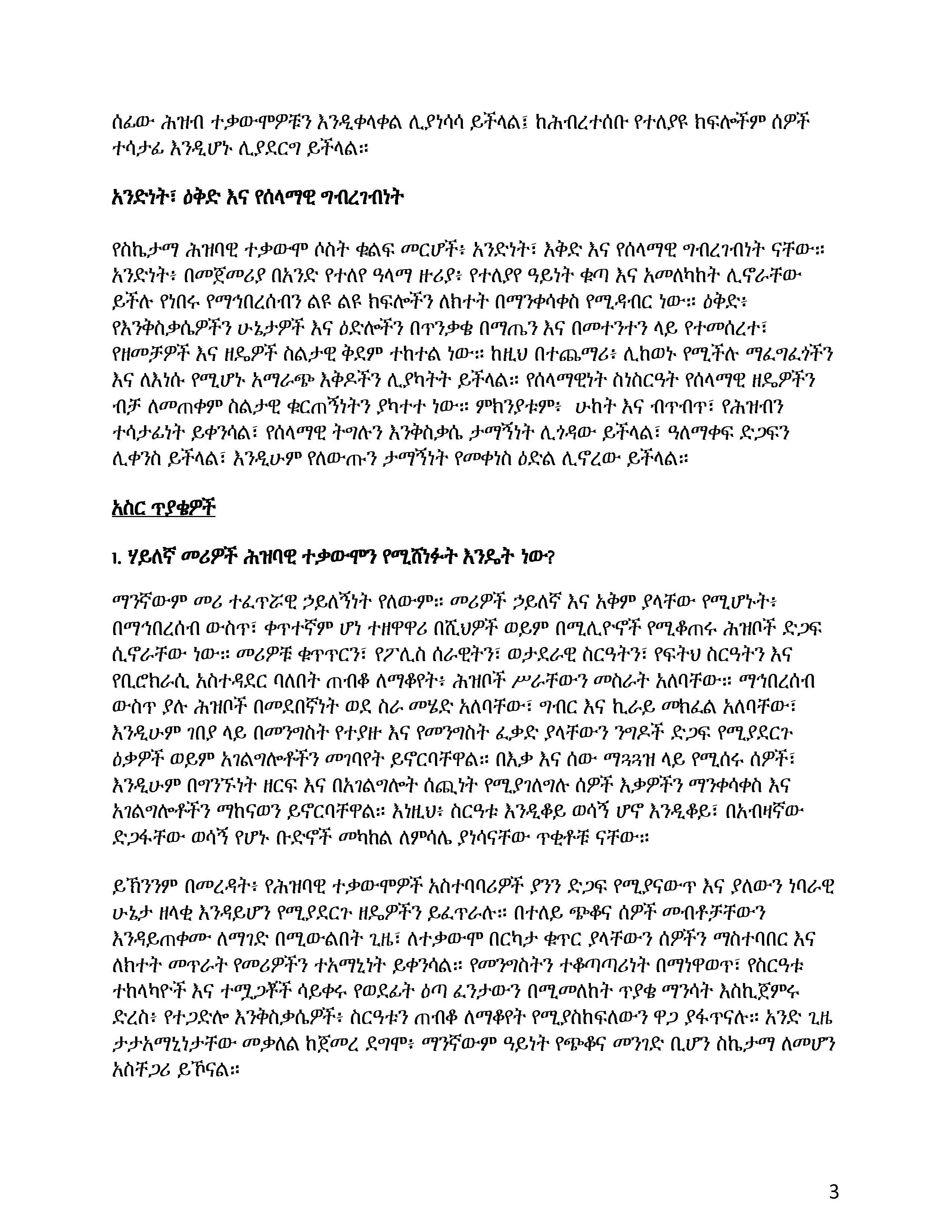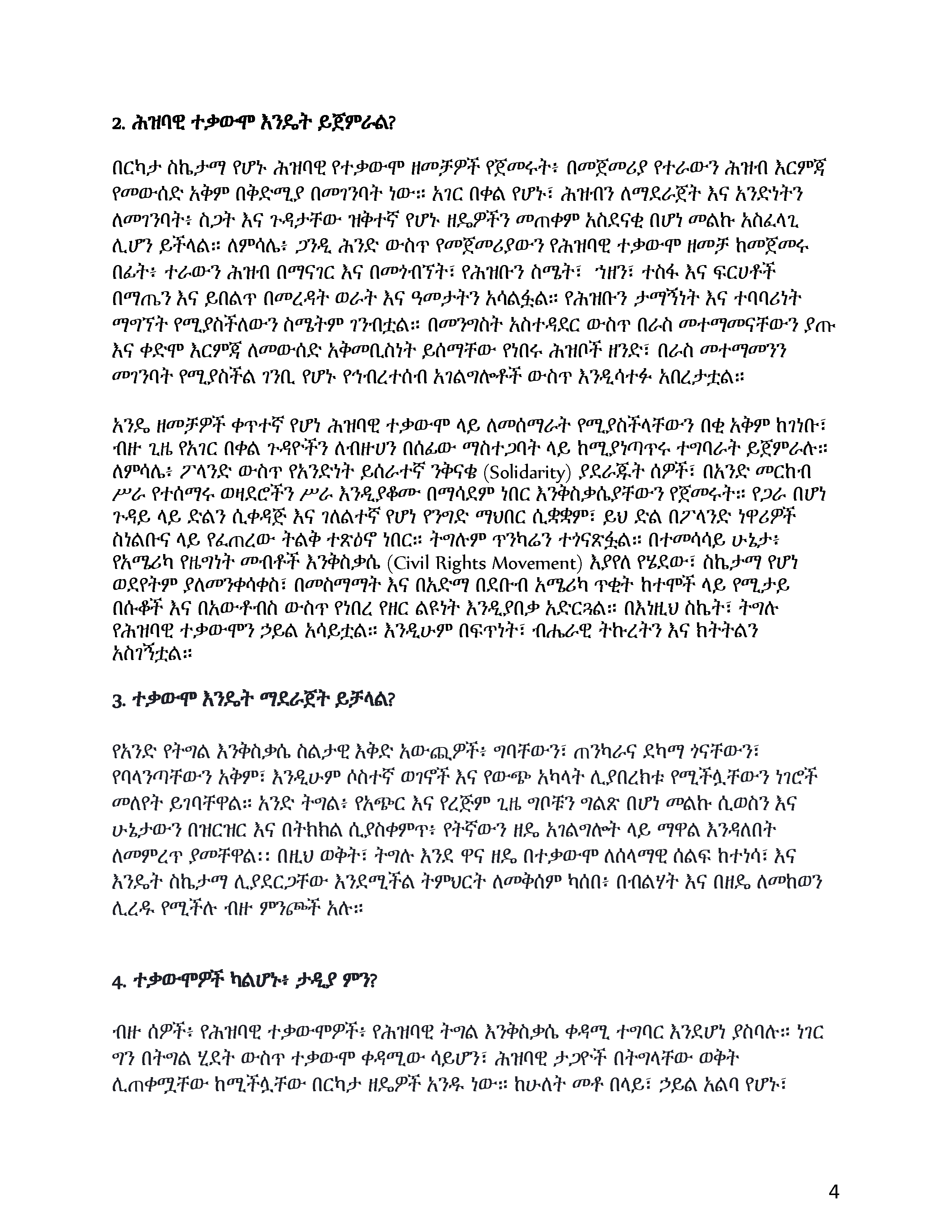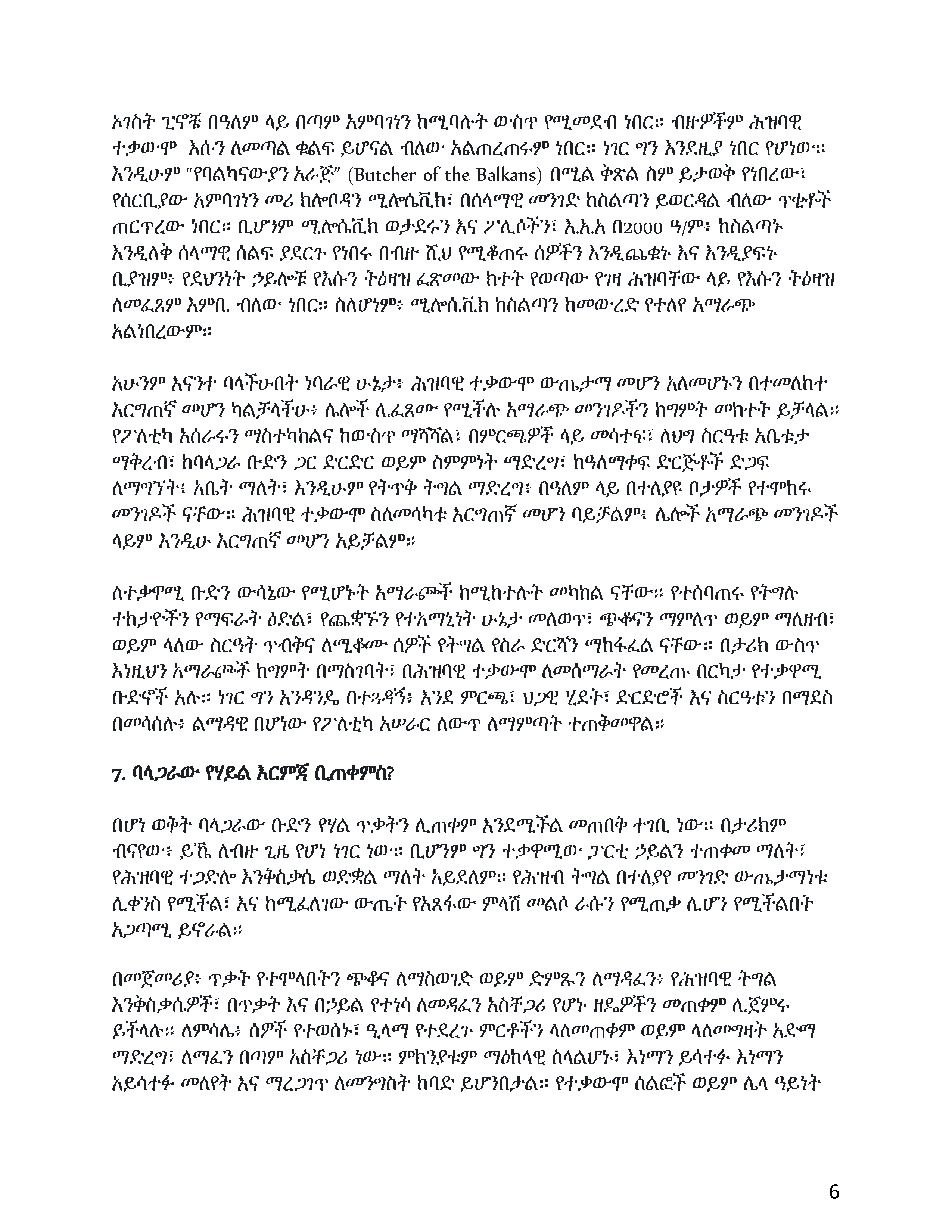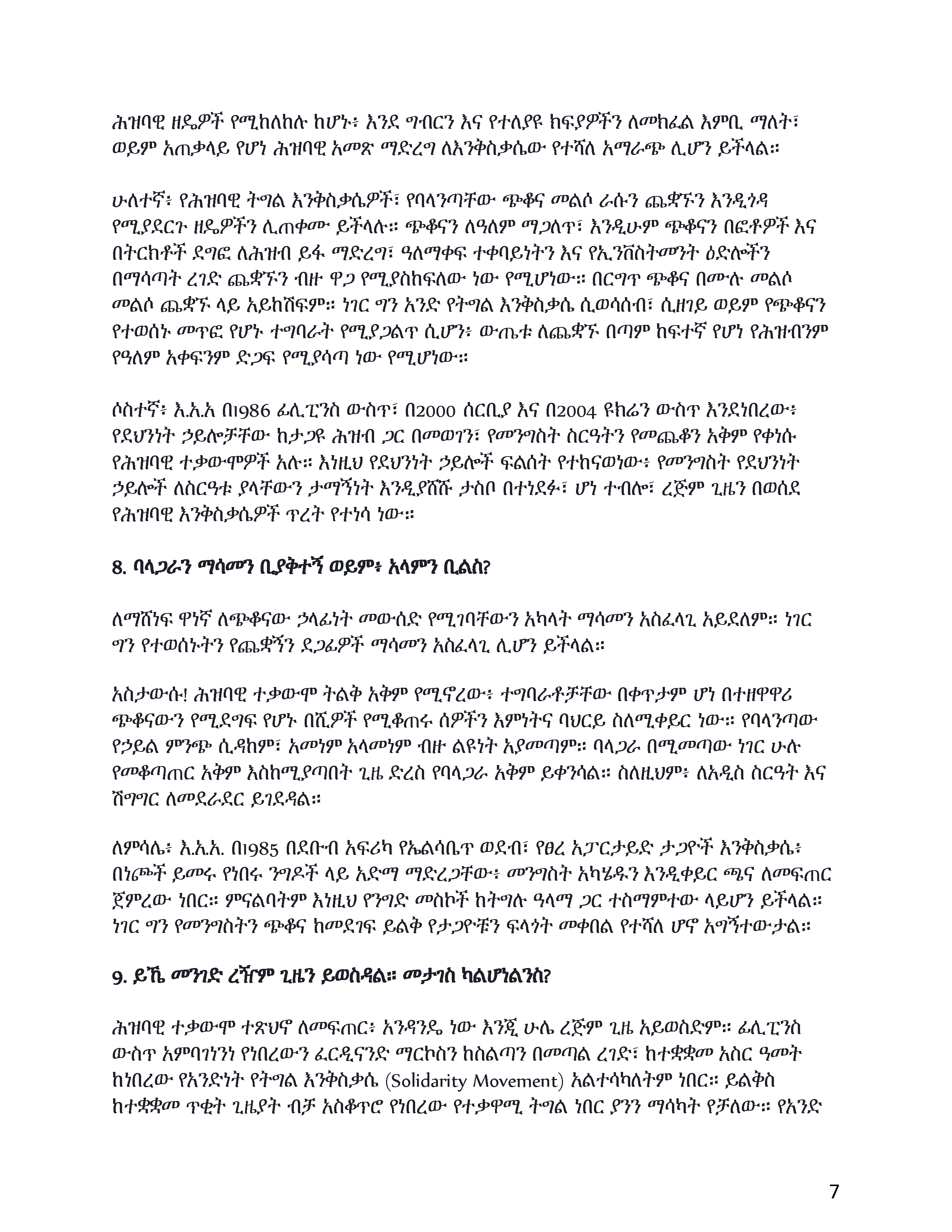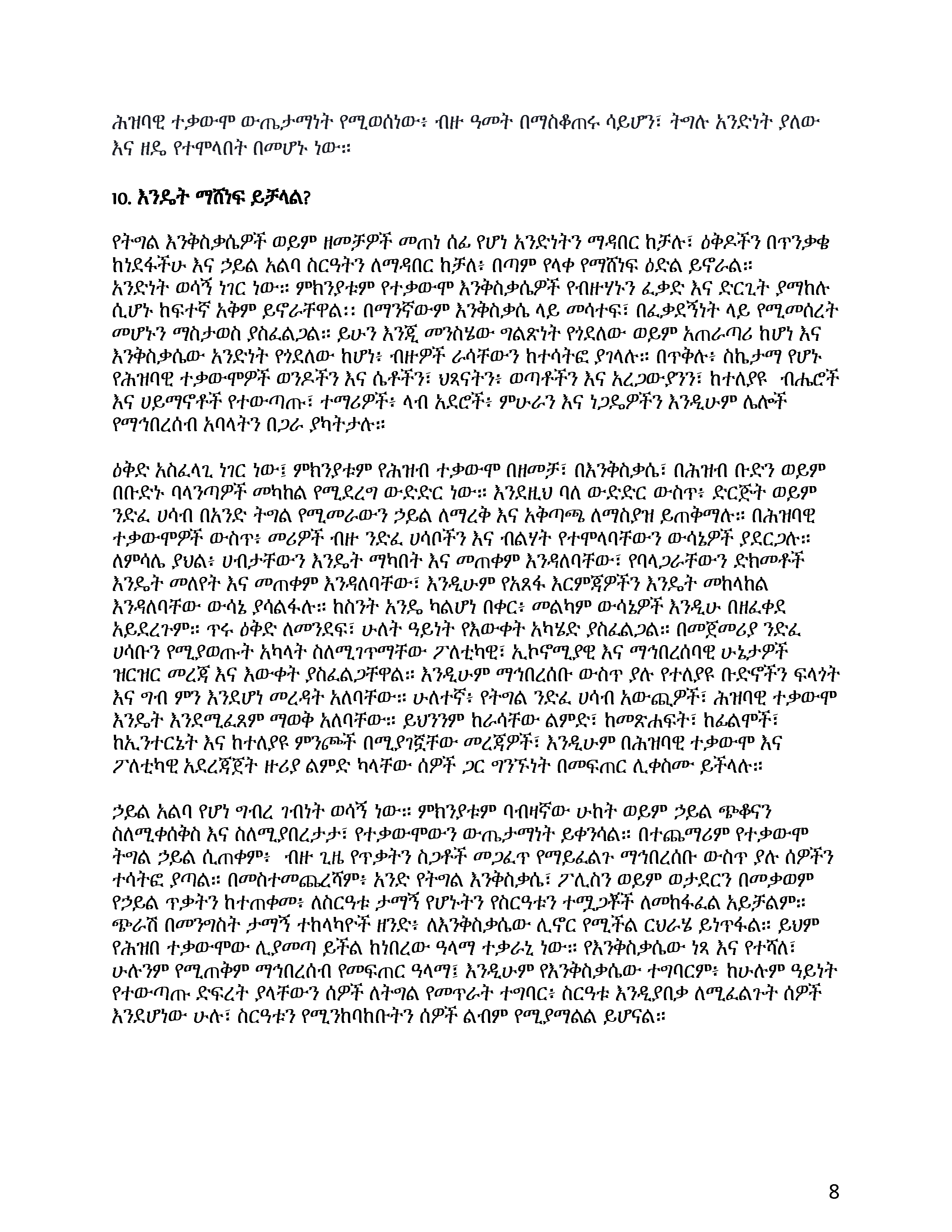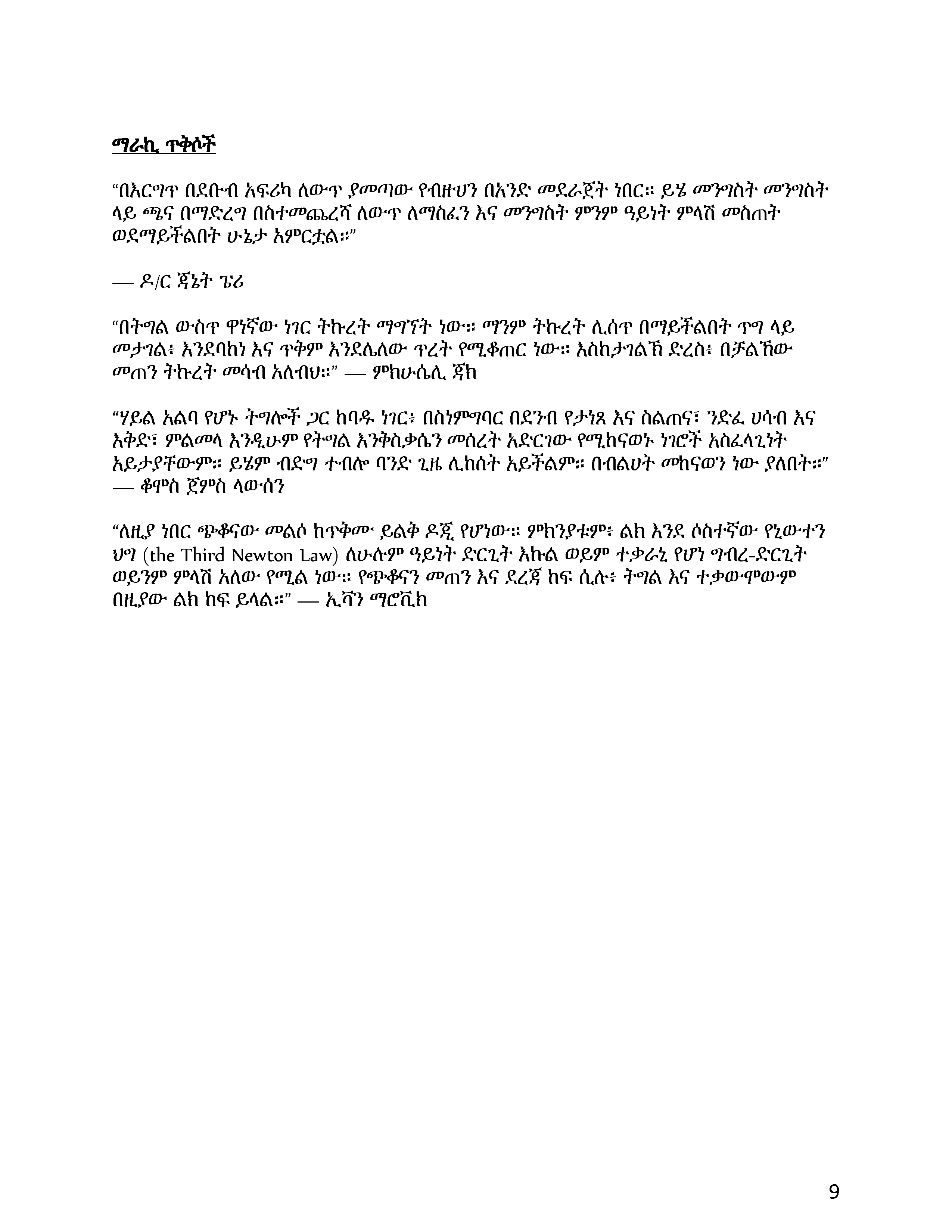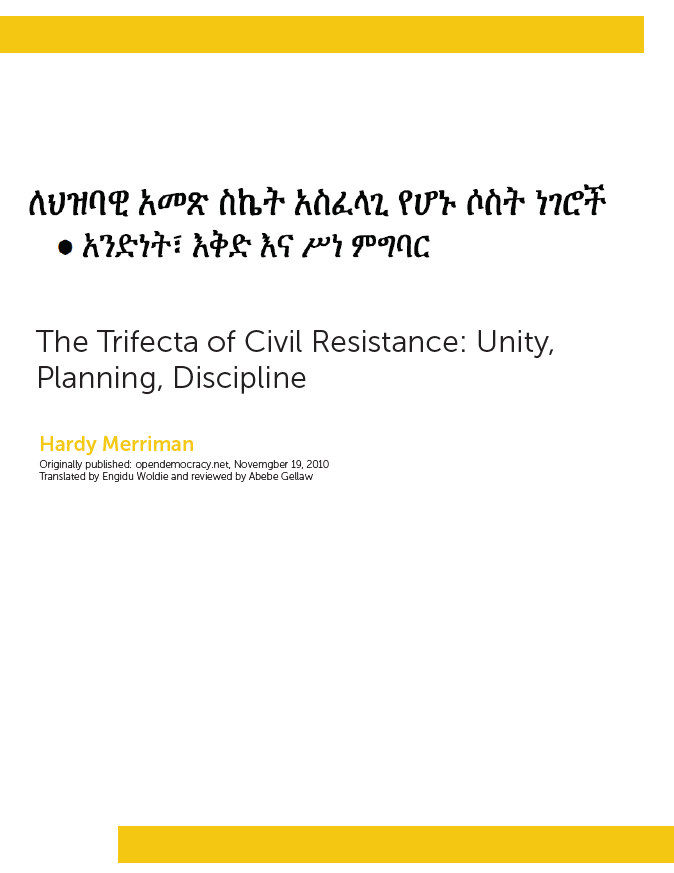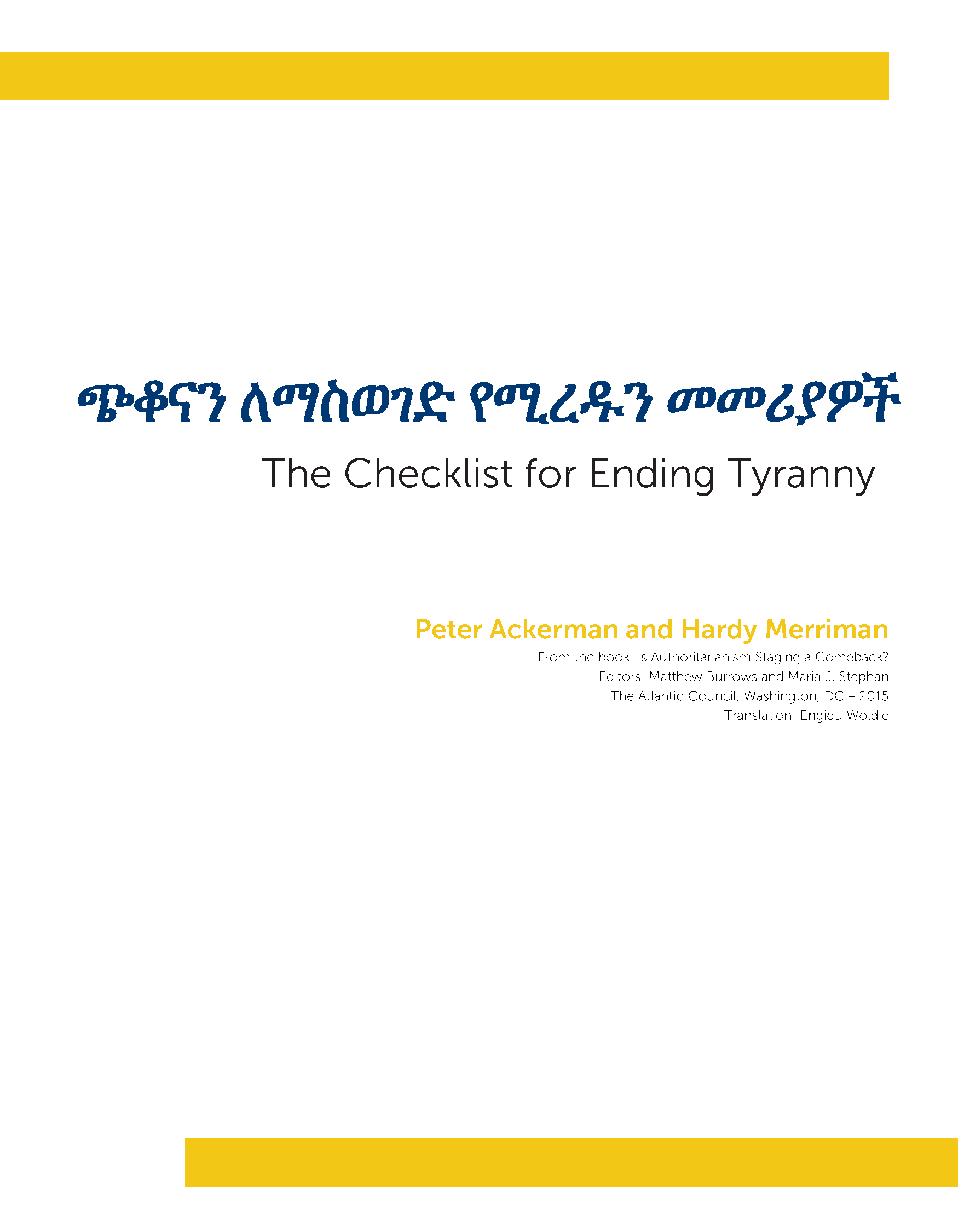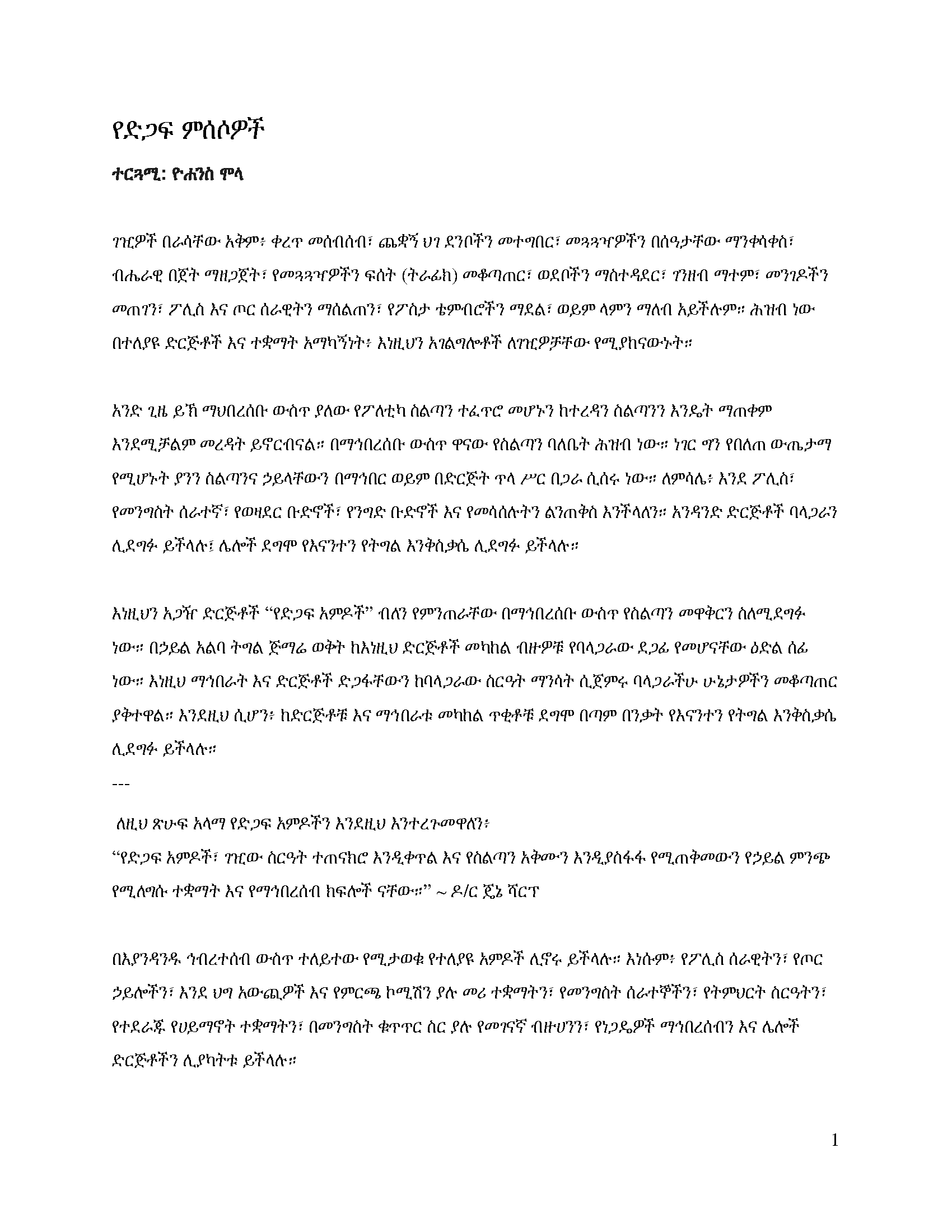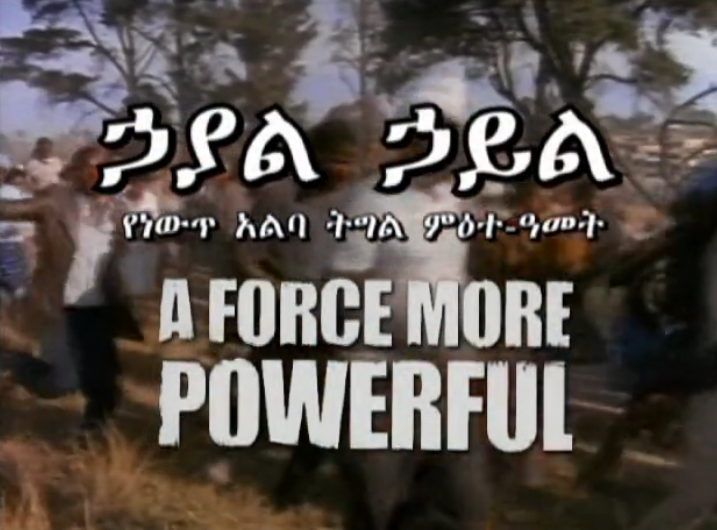ሕዝባዊ ተጋድሎ
Civil resistance is a way for ordinary people to fight for their rights, freedom and justice without using violence. People engaged in civil resistance use diverse tactics, such as strikes, boycotts, mass demonstrations and other actions, to cause wide-ranging social, political and economic change. Around the world, civil resistance has been called by different names—nonviolent struggle, direct action, people power, political defiance, and civic mobilization—but regardless of which term is used, the fundamental dynamics of civil resistance remain essentially the same.
Civil resistance movements are powerful because they summon mass participation in actions to resist oppression by offering a new vision of a freer, fairer society and possibly the loyalties of people who enforce the old system. When people choose to end their cooperation with unjust rulers, that system becomes far more costly to operate. When enough people choose to disobey, the system can become unsustainable, and then it has to change or collapse. Even when the opponents of civil resistance have been well-armed and well-funded, they have often not been able to withstand the sustained mass disobedience and civic disruption caused by strategic, widespread acts of nonviolent defiance.
Translation: ICNC, July 2018


